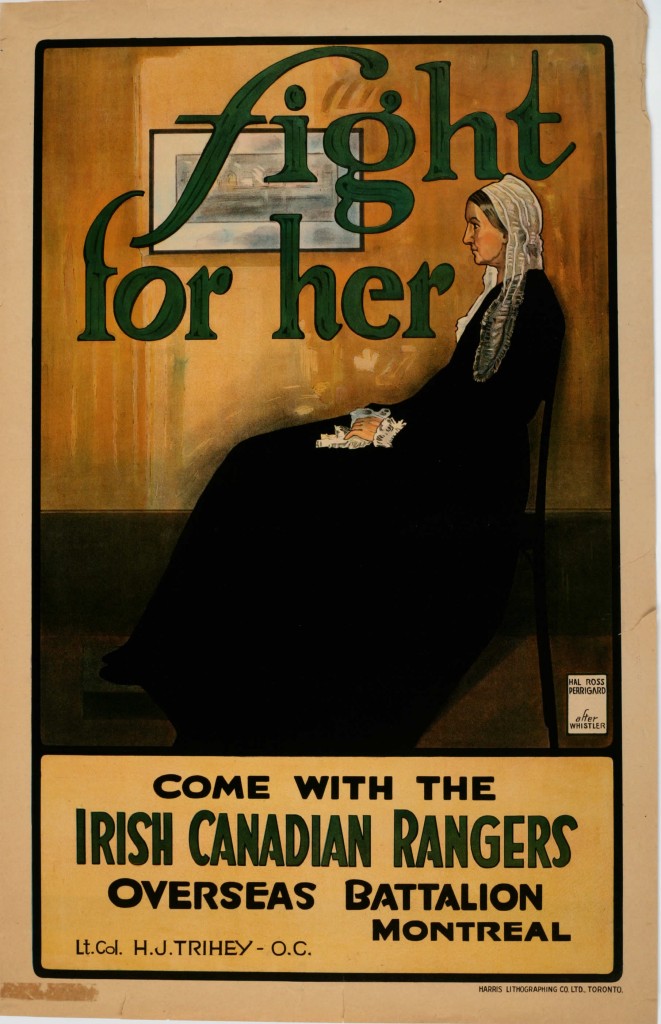 In the festive spirit of LWON’s first birthday celebration, Jessa asked me the following question: “ Squirrel it however you like — War: What is it good for?” The answer follows.
In the festive spirit of LWON’s first birthday celebration, Jessa asked me the following question: “ Squirrel it however you like — War: What is it good for?” The answer follows.
What is war good for? Absolutely nothing. Listen to me–I’ll say it again: absolutely nothing. Huh.
And yet …
Edwin Starr had it absolutely right, of course, in his 1970 hit song, War.* War is nothing but a heartbreaker, an enemy of all mankind—spend too much time doing it, or even thinking about it deeply, and it will truly blow your mind. But is that the whole story? Hardly.
War is an evolved human trait, as much a part of our genetic endowment as our large brains and bipedal gait. (Don’t buy the argument? Buy the book! Or if you’re cheap, read the basics for free. Lazy, too? Try the video version. Sheesh, already.) And it’s a funny thing about evolved traits—they may not be pretty, but by definition, have to be good for something. Or at least, to have been good for something, once upon a time. Otherwise the behavioral predispositions that make war possible–violent aggression and competitiveness, the ability to toggle empathy on and off, among others–wouldn’t have become fixed into our genetic endowment.
Or for someone. The evolutionary logic of war is actually fairly straightforward. All of the evidence** suggests that our earliest human ancestors lived in small, family-based groups. Males in all likelihood stayed with their natal groups, while females were more able to be absorbed into neighboring groups. And the groups were almost certainly dominated by a strict male hierarchy.

This is important for one big reason: males at the top of the hierarchy, and their friends and allies, had way more sex, with way more females, than those lower in the social order. That’s the way it works with chimpanzees, and that’s the way it worked in a whole lot of traditional human societies.*** And it leaves an awful lot of young males, who have not yet worked up the social hierarchy, with precious few opportunities to mate.****
So who was war good for? For our ancestors, the answer was clear: any male strong and violent enough to fight his neighbors to the death, and young enough to need to risk death in order to mate. Because war goes past the simple act of killing and maiming one’s rivals—that’s just a prelude to the raping and pillaging that follow. Our male ancestors evolved this astoundingly bizarre behavior of intentionally setting out to kill members of their own species because doing so meant they could then usurp their territory and mate, as forcefully as need be, with any females who happened to survive.
We are all the descendants, in other words, of particularly successful rapists and thieves. Go back far enough, and war was very, very good for our earliest grandfathers. And probably just awful for the first grandmothers.
Do I have to point out that biology is not destiny, since humans are perfectly well able to recognize their evolved behavioral predispositions and make personal and societal decisions about whether or not to put them into practice. Understanding the evolutionary origin of war does not in any way justify or legitimize the conduct of violence, aggression, war or war crimes. Some of the behaviors of war–primarily teamwork, loyalty and sacrifice for one’s comrades–can be put to beneficial use. But by a wide margin war is a devastating experience for anyone caught up in it–an evolutionary hangover, leftover from a previous time before human culture found ways to improve upon raw human biology.
The idea that war has many benefits goes back a long way, though. Thankfully, we’ve moved beyond Victorian notions of the nobility and necessity of war—World War I was good for that, if nothing else—so that the American Rear Admiral S.B. Luce’s 1891 words ring tragically false, even without the anachronism: “War is one of the great agencies by which human progress is effected … It stimulates national growth, solves otherwise insoluble problems of domestic and political economy, and purges a nation of its humors.”

It’s worth mentioning, though, that there are all sorts of theories still in play about the benefits of war. Those large brains we lug around, for example, sure would have helpful with working out battle strategies, and it’s awfully hard to throw a spear when you’ve got four legs. Who knows, perhaps human intelligence, communication and bipedalism really were selected for as adaptations to our ancestor’s constant warfare, but I haven’t yet seen proof solid enough to buy into those theories completely.
There are more robust arguments to be made about war’s benefits, however. There are several instances, including a well documented one from Mexico’s Oaxaca Valley, where writing seems to have been first used, and perhaps invented, to record the names of vanquished enemies. And there’s probably some truth to the idea that the equality and interdependence of ancient Greek phalanxes set the stage for democratic government. It seems clear that the economic stimulus of World War II helped to break the grip of the Great Depression. And all sorts of useful things were invented to help fight wars, from the Napoleonic prize money that led to the invention of canning to preserve food, to the perfection of radar during WWII.
But even if good things have come from war, Edwin Starr still had it right. Canned peas and nighttime navigation are all very well. But lord knows there’s got to be a better way. Good god y’all!
__
*War was actually written by crack Motown songwriters Norman Whitfield and Barrett Strong, explicitly as an anti-Vietnam War protest, and recoded first by The Temptations. The most famous subsequent cover was probably Bruce Springsteen’s 1986 version, which went some way to repudiating the Reaganistas’ co-opting of Springsteen’s own anti-Vietnam War anthem, Born in the USA, as a lame bit of jingoistic nationalism. (Propagandists don’t seem to listen to the verses, only the chorus. And they never, ever get irony, even when it drips.)
Speaking of irony, former UK Prime Minister Tony Blair apparently recorded a version of War with his college-era band, Ugly Rumours, in the 1970s. I suppose it must really have been him (the singer in the video is just a look alike—and not a terribly convincing one, really) because the song hit the British charts–and music charts don’t lie Anyway, the song has been covered a lot—my own favorite version is probably that by the Canadian punk band D.O.A., but that’s probably just because it was the first version I heard. Anyway, what is this, a music blog? Sheesh, again.
**Which is to say, what we know about extant, and recently extant human hunter-gatherers, and about chimpanzees, which are our closest living relatives and thus closest non-human analog. It’s not perfect evidence, but it’s pretty good—and strikingly consistent.
*** It is also apparently the way many self-identified alpha males would like for it to still work today. That’s a topic for another time, but it seems wise to put it on the record that post-facto evolutionary arguments in support of philandering represent a classic instance of bull honky.
****Mating, you will recall, is quite important in biology generally, and in terms of evolution especially. Anyway, enough with all the footnotes — what is this, a David Foster Wallace tribute blog? Sheesh a third time.
___
Images Top: “Fight For Her” WWI recruiting poster, after Whistler’s mother. Wars have always been fought primarily by young men, and they’ve always been about women—though certainly not always about protecting them. By Hal Ross Perrigard, Harris Lithographing Co., 1915, via Wikimedia Commons/Canadian War Museum. Middle: Wall mural in Son Servera, Majorca. Frank Vincentz, via Wikimedia Commons. Bottom: “Seminude Captive,” M. Weber via Wikimedia Commons.
“Live” war is hopefully getting slowly sublimated into cyberwar, where only avatars are casualties. Probably, we already spend more on that in a week than they did for the whole of WWII. Already drones are used in preference to human-operated weapons, and their targets will follow suit. All the motives you succinctly analyse will be satisfied, at no cost to human life. Which of course raises a whole different parcel of issues …
Bring back jousting, I say.
I really enjoyed this very timely piece. I have been getting increasingly in a funk when reading about our current domestic socio-political responses to our economic situation. In fact, I had decided that for the 2d time in my life, I am going to stop following the news. But considering the recent events from the perspective of your thoughts, they make a little more sense. More alpha males (including too many on our Supreme Court) attacking women’s rights and doing whatever inhumane budget cuts (or interpretations of the right of free speech) they feel like in order to remain alpha males. I will probably keep track of the news enough to see whether our current political alpha males are really willing to risk economic melt down to stay in power.
One final note, I love the appropriateness of the title “Make Birth Control, Not War”.
Thanks for your comments, Tim and Gail. It’s not a very cheery topic, I know, but–and this probably didn’t come through in my post very clearly–I am quite optimistic about humanity’s ability to make war less frequent, and less brutal when it does occur. We’ll never do away with it entirely, I believe, but we’ve already diminished the frequency and lethality of war dramatically over the last 150 years or so–it is hard to believe, but the last 100 years have probably been the least war-like in human history, if you estimate things like the percentage of adults who die in warfare, the total percentage of the human population involved in a war at a given time, etc. Anyway, sublimating–jousting, indeed! Or football, for that matter–and getting some alpha females involved in the major organs of power, along with other things, have already made war less horrific, less often. With luck and hard work, that’s a process that can be pushed much further along.
(And yes, Gail, I hope they don’t, but I don’t doubt for a moment that the more narcissistic of our elected alpha males AND females will be happy to melt the economy just to prove that they can beat their chests louder than the other side. Sigh…progress is slow when you’re dealing with angry apes!)
Your optimism came thru loud and clear.
Hi, Gail. Hi, Tim. Huzzah, Tom! What I have to say is much lower-brow: I posted Christie’s question to you and sneaked that War link in because I couldn’t help myself. I think all these versions of the song are good, and I think the 1970 Starr video looks like he’s having more fun with the sex part of sex-and-war than with the war part. But I heard the song for years only on the radio, which is where you hear the anger, fury really, and disgust. I purely LOVE that song, maybe because at the time I was in and out of war-torn Detroit.
Tom, in addition to all the insightful comments above, let me just say that I’m glad our international blog publishes on July 4. (Happy belated Canada Day!)
War became less than advantageous in 1945, when we demonstrated that global annihilation was possible.
If war came from some evolutionary advantage, then one of the other children was our current legal system. Some of the best bits of the US constitution were in direct reaction to how law was used to bully in the mother country.
We’d like justice. But all we have are the courts.